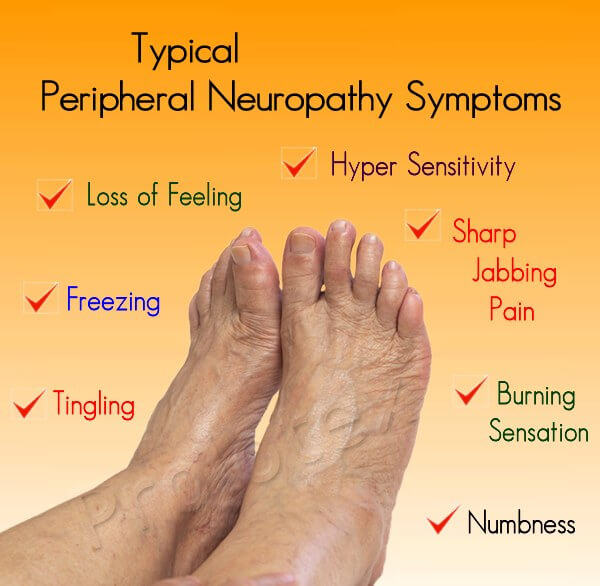Diabetes
Neuropathy Massage & natural solution
How does Massage Help?
Massage helps recover feeling and may even reduce some of the pain, but relief (disappear) or cure (remove the damage) can not. It could also help limit further damage occurs. Anyway require treatment under control glucose (sugar) and where possible keep walking, if you stop walking or short walks can be further reduced mobility (by neuropathy but mostly other reasons) in addition to low-impact exercise (walking) will help maintain good glucose levels and avoid other problems that often come with diabetes (cholesterol, heart, etc) Water with shoes, diabetic shoes are recommended to avoid the formation of sores that get complicated, and there are diabetic socks that are seamless and springs are softer to prevent sores and diabetic foot.

What is peripheral neuropathy?
Your peripheral nervous system connects the nerves from your brain and spinal cord, or central nervous system, to the rest of your body. This includes your:
- arms
- hands
- feet
- legs
- internal organs
- mouth
- face
The job of these nerves is to deliver signals about physical sensations back to your brain.
Peripheral neuropathy is a disorder that occurs when these nerves malfunction because they’re damaged or destroyed. This disrupts the nerves’ normal functioning. They might send signals of pain when there’s nothing causing pain, or they might not send a pain signal even if something is harming you. This can be due to:
- an injury
- systemic illness
- an infection
- an inherited disorder
The disorder is uncomfortable, but treatments can be very helpful. The most important thing to determine is whether peripheral neuropathy is the result of a serious underlying condition.
SYMPTOMSWhat are the symptoms of peripheral neuropathy?
The three types of peripheral nerves are:
- sensory nerves, which connect to your skin
- motor nerves, which connect to your muscles
- autonomic nerves, which connect to your internal organs
Peripheral neuropathy can affect one nerve group or all three.
The symptoms of peripheral neuropathy include:
- tingling in the hands or feet
- a feeling like you’re wearing a tight glove or sock
- sharp, stabbing pains
- numbness in the hands or feet
- a weak, heavy feeling in the arms and legs, which sometimes may feel like your legs or arms lock in place
- regularly dropping things from your hands
- a buzzing or shocking sensation
- thinning of the skin
- a drop in blood pressure
- sexual dysfunction, especially in men
- constipation
- digestive difficulty
- diarrhea
- excessive sweating
These symptoms can also indicate other conditions. Make sure you tell your doctor about all of your symptoms.
CAUSES :
What are the causes of peripheral neuropathy?
People who have a family history of peripheral neuropathy are more likely to develop the disorder. However, a variety of factors and underlying conditions may also cause this condition.
Generalized diseases
Nerve damage caused by diabetes is one of the most common forms of neuropathy. This leads to numbness, pain, and a loss of sensation in the extremities. The risk of neuropathy increases for people who:
- are overweight
- have high blood pressure
- are over the age of 40
- have diabetes
